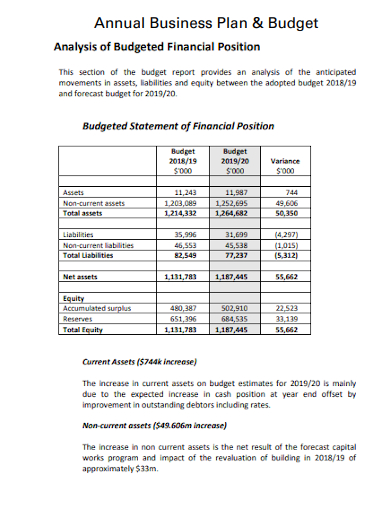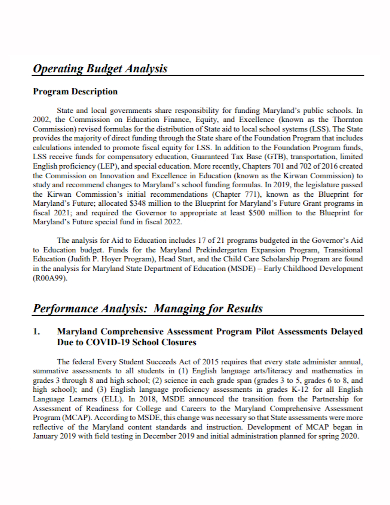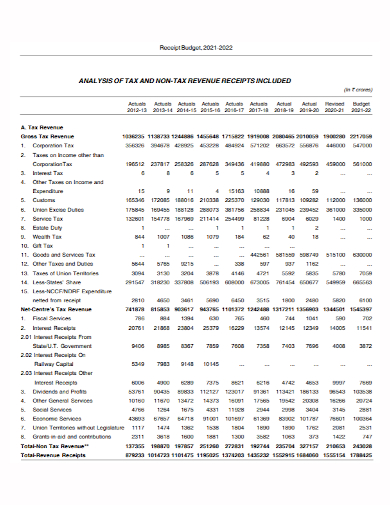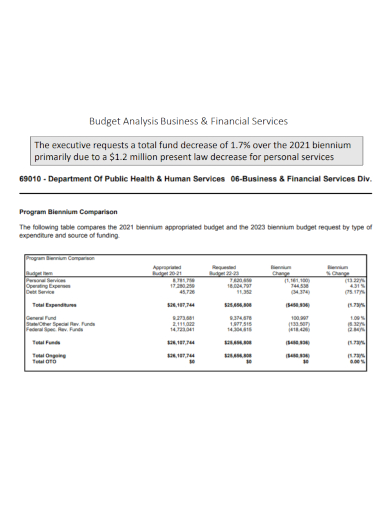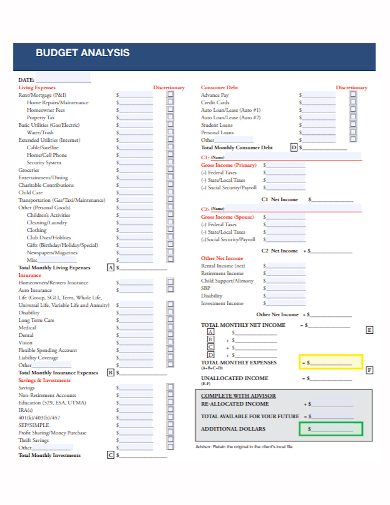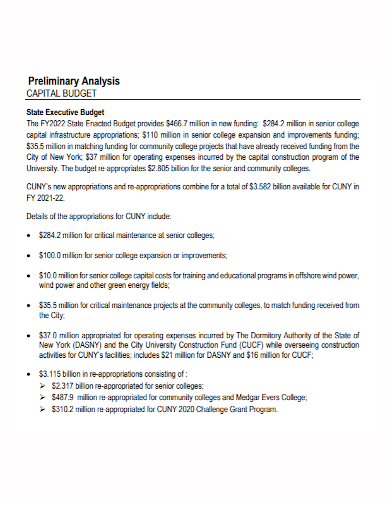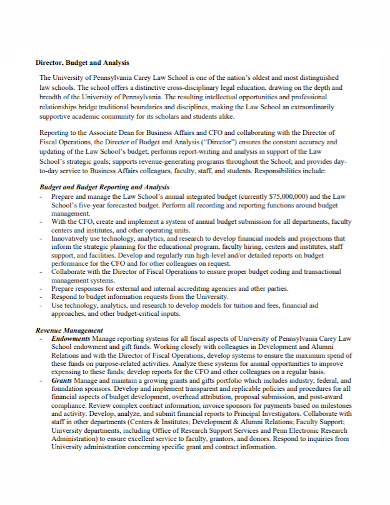Budget Analysis is a fact-based, persuasive assessment of current competitiveness and the economic opportunity associated with destination marketing budget funding. The competitive nature of tourism, the perishability of the product, seasonality, the value of scale, and the importance of brand development are all discussed in this study. In each of these areas, a case is made for why destination promotion is an important part of enhancing the state’s tourism sector’s economic value. This is based on a mix of economic theory, statistical analysis, and real-world examples.
10+ Budget Analysis Samples
What is budget analysis? A budget analysis is a method of determining the financial health of a company. You can keep track of how much money the company makes and compare it to how much it spends over time by looking at the budget. Budget analysis can help executives make important decisions about the company’s expenses and revenue streams. Many companies analyze their budgets every month, but you may prefer to do so quarterly, annually, or on a different schedule. In most businesses, creating a budget is a critical step. By conducting budget analyses at regular intervals, you can maximize the value of a good budget. Budget analysis can help you figure out where money is coming in and going out of a business, as well as how to maximize profits.
1. Budget Analysis Template
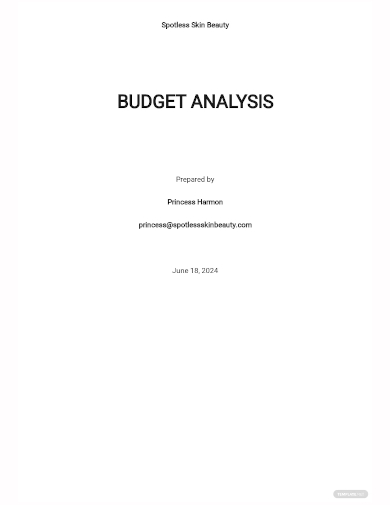
2. Business Budget Analysis Template
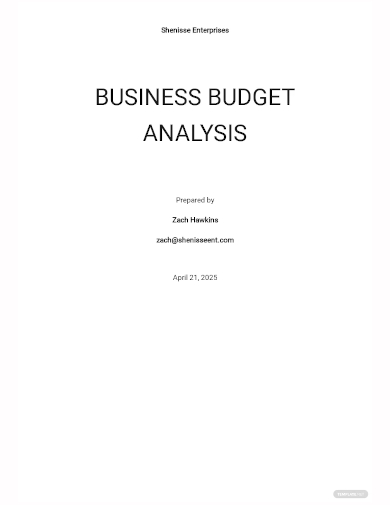
3. New Hire Budget Analysis Template
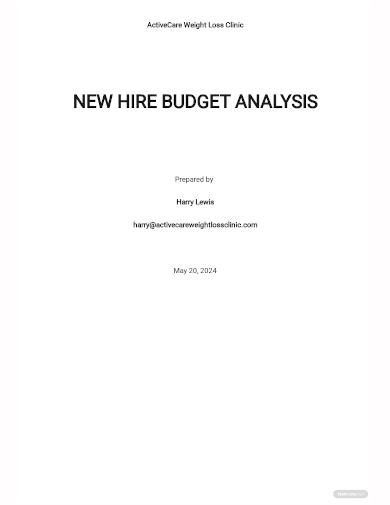
4. Termination Budget Analysis Report Template
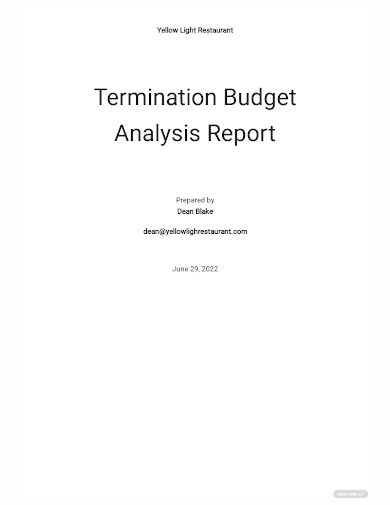
5. Annual Business Plan Budget Analysis
6. Operating Budget Analysis
7. Tax Budget Analysis
8. Business Financial Budget Analysis
9. Sample Budget Analysis
10. Capital Budget Analysis
11. Business Management Budget Analysis
Tips on Budget Analysis
- Leverage technology – Budgeting software can assist you in keeping track of your earnings and expenses. Technology can also assist you in making sense of your budget data in the increments you’ve chosen. A specific budgeting software, for example, might provide the reports you need to evaluate spending in a specific category or department. Before you start your budget analysis, look into budgeting software options, and evaluate them regularly to make sure it’s still helping you meet your budgeting objectives.
- Collaborate with your team – Financial data can be difficult to understand, especially in businesses with multiple departments or divisions. To decide what kind of budget to prepare, gather budget information, and interpret the information you gather from the budgeting process, you might find it helpful to collaborate with colleagues in your department and others. If one does not already exist, you may want to create or suggest a formal budget committee or workgroup.
- Explore more solutions – The most crucial aspect of the budget analysis is ensuring that you can put your findings to good use. When you’re working on a budget, don’t forget to look into a variety of options. Thinking of ways to improve your budget can help you make existing financial data more useful and inform future budget cycles.
- Stay flexible – Keep in mind that your budget should be tailored to your company’s requirements. If it appears that your budget strategy and analysis methods could be improved, think about how you could change your process to better suit your needs. If it’s possible, work with your team to come up with alternative budget analysis strategies. To ensure that your system remains as productive as possible, you may want to implement a formal budget analysis process evaluation schedule.
- Look for good – While it’s natural to focus on areas of your budget where expenses exceed income, don’t forget to look at areas of your business that are doing well. Look for departments or divisions that have been successful in maximizing profit over multiple budget cycles and try to figure out how they have achieved financial health in their respective areas.
- Think ahead – Budget analysis is a useful tool for determining the financial health of a company at any given time. It can also be a useful tool for forecasting a company’s financial future. When you examine your budget, look for any trends and see if you can forecast future budget information using that information.
FAQs
What are the budgeting methods?
- Incremental – To get the current year’s budget, incremental budgeting takes last year’s actual figures and adds or subtracts a percentage. Because it is simple and straightforward, it is the most widely used budgeting method.
- Activity-based – Activity-based budgeting is a top-down approach to budgeting that determines the number of inputs needed to support the company’s targets or outputs.
- Value proposition – Value proposition budgeting is really just a way of thinking about making sure that everything in the budget adds value to the company. Although it is not as precise as our final budgeting option, zero-based budgeting, value proposition budgeting aims to avoid unnecessary expenditures.
- Zero-based – Zero-based budgeting, one of the most widely used budgeting methods, assumes that all department budgets are zero and must be rebuilt from the ground up.
What are the levels of involvement in the budgeting process?
- Imposed budgeting
- Negotiated budgeting
- Participative budgeting
If you want to see more samples and formats, check out some budget analysis samples and templates provided in the article for your reference.
Related Posts
FREE 10+ Failure Mode and Effects Analysis Samples in PDF
FREE 10+ Make or Buy Analysis Samples in PDF
FREE 10+ Fishbone Root Cause Analysis Samples in PDF
FREE 11+ Cost Volume Profit Analysis Samples & Templates in PDF | MS Word
FREE 6+ Corporate Portfolio Analysis Samples in PDF
FREE 10+ Fault Tree Analysis Samples in PDF
FREE 10+ Comp Analysis Samples in PDF
FREE 10+ Fishbone Analysis Samples in PDF
FREE 10+ Individual Swot Analysis Samples in PDF
FREE 10+ 5 Year Analysis Samples in PDF
FREE 10+ Benefit Costs Analysis Samples in PDF
FREE 10+ Job Hazard Analysis Samples in PDF
FREE 10+ Primary Source Analysis Samples in PDF
FREE 10+ Critical Path Analysis Samples in PDF
FREE 10+ Competition Analysis Samples in PDF

